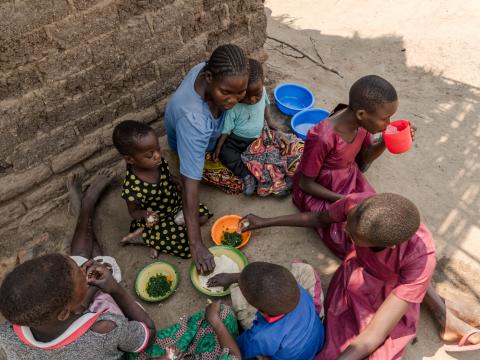Global Alliance Marks a Transformative Year in The Fight Against Hunger and Poverty

Press Release. - London/Doha, 3 November 2025. One year after its inception, the Global Alliance Against Hunger and Poverty is, arguably, redefining what genuine multilateral cooperation looks like in a fractured world. At its First Leaders’ Meeting in Doha, a moment thick with both symbolism and urgency, five governments: Ethiopia, Haiti, Kenya, Palestine and Zambia, unveiled ambitious, multi-partner implementation plans. These are not mere policy pledges but detailed, costed frameworks designed to drive tangible progress in social protection, agriculture, nutrition and climate resilience.
To a certain extent, the momentum now gathering around the Alliance reflects a quiet recalibration of global priorities. Membership has surged to more than 200 countries and organisations, suggesting a collective appetite for systemic solutions rather than temporary relief. The meeting’s announcements also signal the first major results of the Fast-Track Initiative, launched just nine months ago, and already yielding measurable action.
“The impact of the Alliance’s work goes far beyond the initial wave of Fast-Track countries,” said Wellington Dias, Brazil’s Minister of Social Development and Co-Chair of the Alliance. “It has put the fight against hunger and poverty back on the global map and agenda. Countries all around the world are reinforcing their programmes and plans, generating economic inclusion and jobs.”
Although one might contend that the notion of “a new global compact” is ambitious, the figures tell a persuasive story. World Bank data indicates that over 700 million people remain trapped in extreme poverty, while global hunger has increased for the third consecutive year. Yet, central to the Alliance’s approach is an insistence on country ownership, recognising that local leadership, not external direction, anchors sustainable change.
“This is not business as usual,” asserted Eva Granados, Spain’s Secretary of State for International Development and Co-Chair of the Alliance. “This is about countries leading with their own plans and priorities, and the international community aligning behind them with coordinated support. This is how we accelerate progress—not through fragmented projects, but through integrated partnerships that strengthen national systems and deliver at scale.”
While persuasive, this view overlooks the quiet scepticism shared by many observers who note that genuine coordination among donors remains elusive. Central to this claim is an assumption that multilateral actors, historically driven by competing agendas, can sustain unity beyond the early phase of enthusiasm. Still, the Alliance’s capacity to convene diverse partners—from international financial institutions to philanthropic networks offers a rare glimpse of coherence amid global dissonance.
Dana Buzducea, World Vision International’s Global Advocacy and External Engagement Leader, reflected on the deeper implications:
"Hunger is not inevitable it is a reflection of our collective will to act. Through the Global Alliance, we have an opportunity to turn commitments into tangible progress and ensure that every child has enough: enough food, enough opportunity, and enough hope.”
You can find the full GAAHP press release HERE
In her address, Dana Buzducea urges leaders to turn commitments into concrete action, reminding us that hunger is not inevitable but a matter of political will. She calls for smarter investment, stronger collaboration, and renewed resolve to ensure every child has enough food, opportunity, and hope.
ENDS-
For media interviews contact: Karla Harvey, Sr Advisor of Impact Comms & External Engagement.
Email: karla.harvey@wvi.org